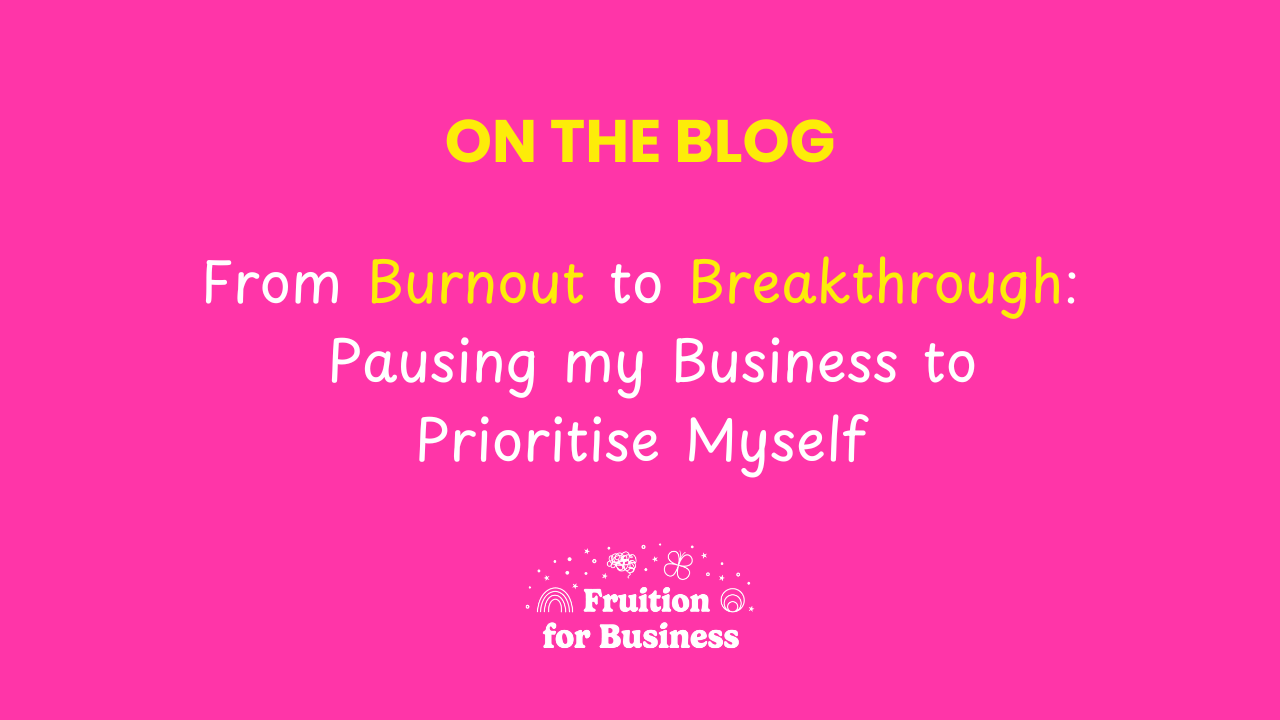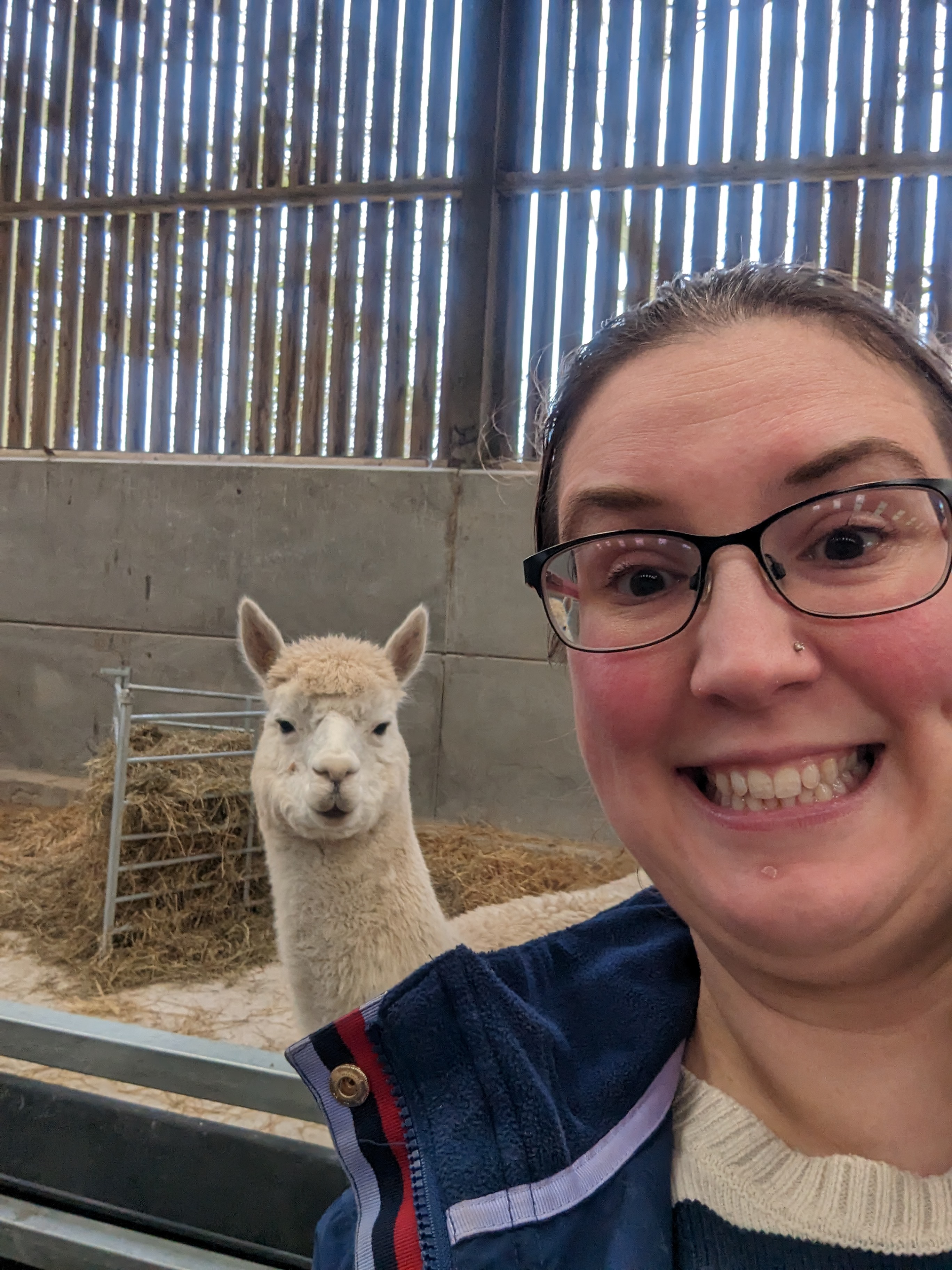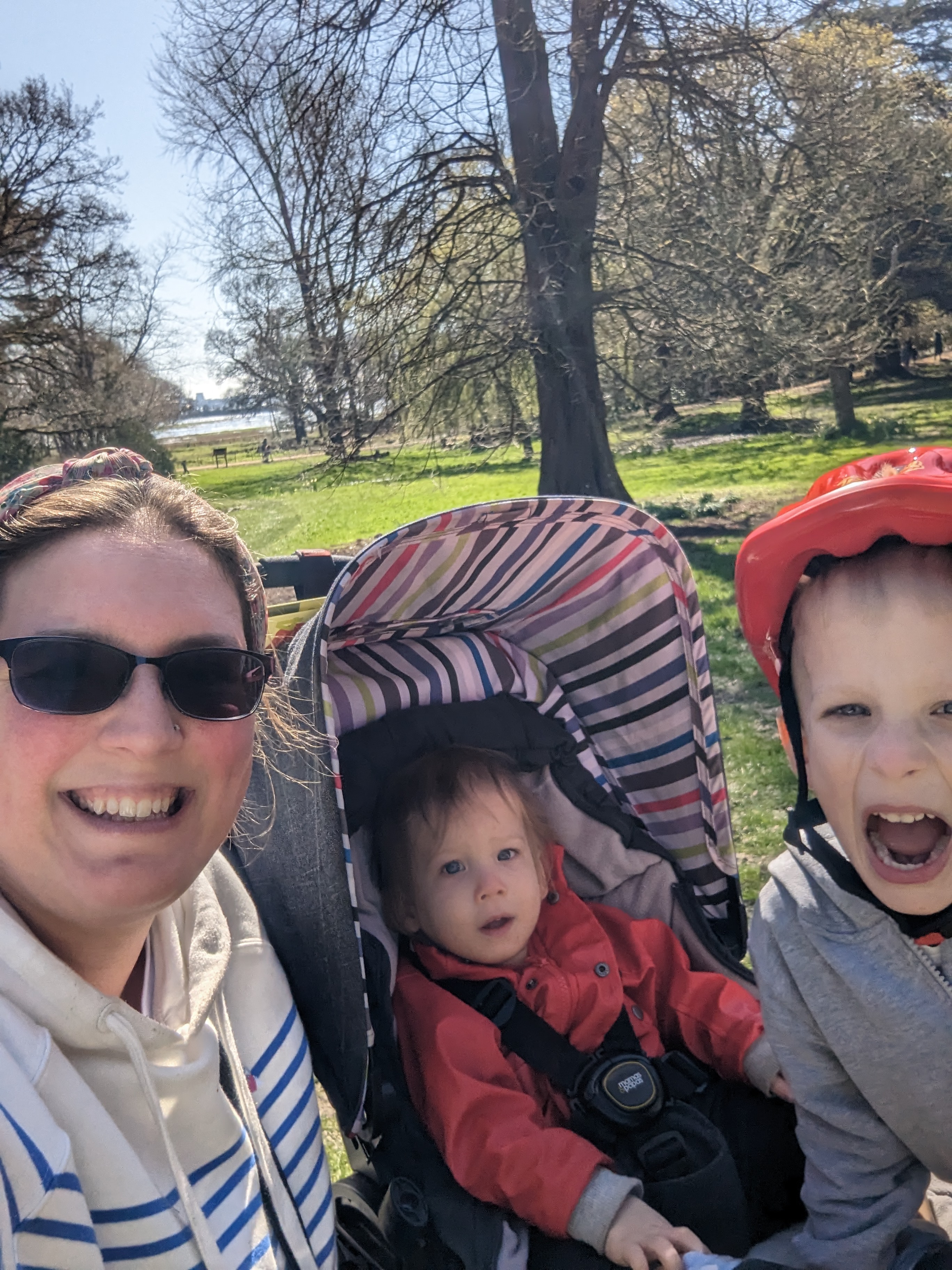
From Burnout To Breakthrough
Aug 28, 2025Back in early 2023, I found myself needing to take some time out from my business to look after myself and prioritise my mental health. I was feeling burnt out and in pain - I was overwhelmed from juggling a part-time job, being a mum, and running a business. At the same time, I was going through a lot with my ADHD*, including overstimulation and many difficult realisations. I now realise I was in major ADHD Burnout.
I needed to take some time for me!

From coaching to lifestyle changes and building a supportive community, it was (and still is) a work in progress. But I wanted to share my journey from #crappytohappy and the strategies I began to discover that helped me, my family and my business.
The Trigger
At the time, I had been working a part-time job in a very overstimulating café, not ideal for someone with processing and sensory issues. My days were jam-packed: being a mum in the morning, switching to business owner for a few hours, then heading out to be a part-time barista in the evening. I was struggling with the changes and realised how much I was having to change masks. But what really got me was all the demands. The demands were too much and I needed them to stop!
Eventually, I noticed (and others did too) that I was a shell of myself. A wonderful friend who was supporting me on my health journey helped me realise that my low days and unhappiness might be more than just burnout…It had become depression. However, now looking back, I realise how ADHD burnout is so different to normal burnout and how it was so survere that it felt like depression.
This coincided with an Access to Work funding application that made me realise how significantly ADHD was affecting my life. Old memories resurfaced that highlighted just how long I’d been struggling. One major realisation: I had lived with an eating disorder most of my life.
These moments of clarity, combined with the exhaustion of just trying to survive, became too much. I broke down to my husband and admitted that something had to change.
Breaking the stigma
The first thing I did was speak to my doctor. I know that’s not always helpful for everyone, but I was lucky. I got a lovely female GP who listened, supported me, and spoke to me like a human being. I want to stress that there’s no shame in seeking medical help. For me, antidepressants helped bring balance to my mind, which in turn helped me manage my ADHD symptoms.
It’s so important to have honest conversations with healthcare professionals without shame or judgment.
Taking breaks and prioritising health
The next big step I took (which I know isn’t possible for everyone) was leaving my part-time job. It impacted us financially, but I couldn’t ignore how unhappy and in how much pain I was in. It was making me ill. In fact 12 months later in early 2024 I was diagnosed with Fibromyalgia.
I also took a PROPER break.
I made it a priority to reduce as many demands as I could. I cancelled plans, spoke to my clients about reducing my workload, stepped away from social media, found help with childcare where possible, and made rest a priority. I was fortunate to have understanding clients who respected the importance of health and well-being. Filling your own cup really does help you serve others better.
I slept a lot and napped when I needed to. I asked my partner to take on more with the kids and around the house and with his support, I started the journey back to feeling like I could live life again.
I started to implement small, healthy habits that had a significant impact on my life but I did this with the community of others.
Feeling connected and grounded
I spent more time outdoors, surrounded by nature and animals, and that gave me a deep sense of connection. I loved just taking a moment to walk outside, my feet on the grass and taking a breath. I also tried to go to places where I knew I could see animals.

Mindset work played a huge role, too. I journaled a lot and began meditating again - something I’d always loved but never made time for. It can feel hard at first for an ADHD brain but it was the best way I found to give my brain a break, a break it needed!
I embraced spirituality, which helped me reconnect with myself and with the world around me – I joined my lovely friend Stevie’s community, which helped me identify my blocks and reconnect with my mindset. She taught me to embrace emotions instead of fearing them. With affirmations, reflection, and intuitive work, I started making decisions that supported my well-being and just generally felt a sense of belonging when I was in the community with other amazing women.
Working with coaches
There’s a saying that ‘it takes a village’ and it really does. I was only able to make some of these changes because of two things. One, I took time to fully rest so that I felt I could then start doing more things, the demand avoidance had gone. And secondly, I worked with coaches and was fortunate to receive Access to Work funding for ADHD coaching. I started working with Victoria Tretis, and we explored what it meant to truly accept ADHD in my life and business.
I also surrounded myself with other amazing and inspiring business owners through my lovely mentor Erin’s, Life-Friendly Business community called Cocoon (Aff). It helped me figure out what a life-friendly business looked like, not just as a mum of two, but as someone with a different energy and neurotype.
Financial worries and seeking support
Let's talk finances for a moment. When you're self-employed, it's natural to worry about making money. I totally understand that it’s especially tough if you don’t have the support of a partner or family. However, it's crucial to remember that prioritising your mental health and seeking support should be your top priority. Without it, you don’t function and if you don’t function, life starts to fall apart around you!
Real talk here: money was causing myself and my family a lot of stress.
Leaving my secure part-time job seemed like a backwards decision to make. BUT, it wasn’t a rash one. We weighed up our options and figured out a plan to survive, literally just survive and we were able to make it work. We felt the effects for some time but me being happy and healthy has far outweighed that and since then many more opportunities have come my way.
Don't hesitate to explore help from the government through Universal Credit or support from mental health charities, such as Mind or Steps 2 Well-Being (local to Dorset). There's no shame in asking for help or support when needed.
Creating boundaries and overcoming overwhelm
One boundary I knew I needed to change was being present. I realised switching roles throughout my day, especially as someone who has ADHD, made my brain go into melt down! So now, I make sure when I’m off with my kids, I’m purely with them. When I’m working, I make sure that it’s focused time, just for work. I understand that this isn’t always possible (I still have childcare issues now!) but as someone with ADHD, not having to wear multiple hats at once really helped.

We live in a hyper-connected world, where notifications and messages can become overwhelming. It's okay to turn off notifications on your phone or computer. You're not being rude, you're prioritising your mental well-being. If it makes you feel more comfortable, let other people know. I put it in my out-of-office, I messaged friends and I put on social media that I was taking a break.
If possible, delegate tasks or automate processes to lighten your load. However, if you can't delegate, don't worry. The world won’t implode if you need to take a break. It will all be there when you get back. Take things one step at a time, breaking down projects into manageable tasks. You don't have to do everything at once. Rome wasn't built in a day, right?
Building a supportive community
The biggest thing you will take from this is how I was surrounded by community. Don’t get me wrong, I had plenty of alone time, but it was with the right communities and support that I got the right help.
Surrounding yourself with a positive and supportive community is vital, particularly as a solo entrepreneur. But when you are neurodivergent, finding other people who actually get it is life-changing!
You are never alone!
Here's my best lessons learnt/advice
- Learn your signs or triggers for burnout or depression
- Reduce your demands wherever you can
- Talk to a professional, whether a GP, therapist or coach
- Take a break and rest when needed
- Reconnect with what you love and what lights you up
- Seek financial help if you need it
- Set and stick to your boundaries
- Find your community - those who accept you just as you are
If you want to understand how burnout is impacting you or to learn how to avoid the burnout cycle then I would love for you to download my FREE Burnout Toolkit for ADHDers.
If you would like to talk about more in-depth support to work through burnout and understand how your neurodivergence plays a part then book a connection call with me.
For mental health support, please contact:
Samaritans: 116 123 or email [email protected]
Mind: 0208 215 2243 or visit their website for urgent help
*What is ADHD?
Attention deficit hyperactivity disorder (ADHD) is a neurodevelopmental condition affecting both children and adults. Common symptoms include difficulties with attention, hyperactivity and impulsivity. These traits, often seen as challenges, can also be harnessed as strengths when understood and supported.

